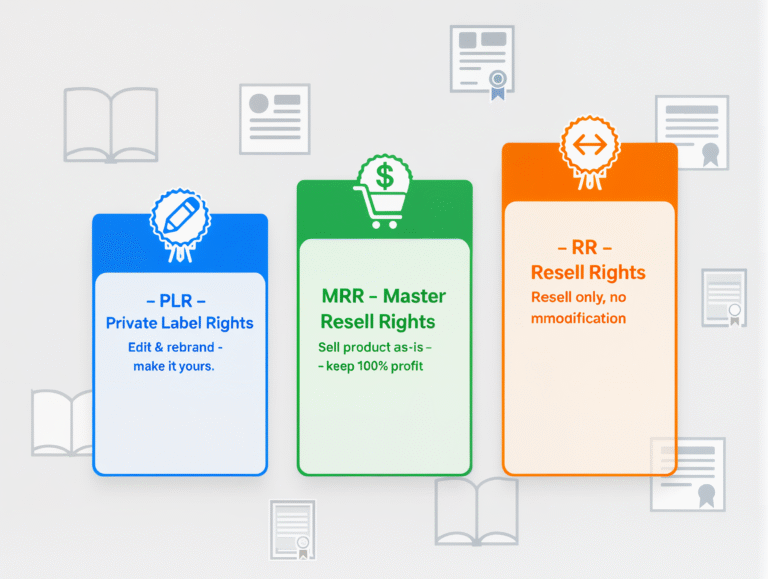Optimizing SEO with AI has been a topic of growing interest for many digital marketers. With technology advancing at an impressive pace, integrating artificial intelligence into SEO strategies opens up new possibilities. I have seen firsthand how using AI tools can transform SEO methods, making them more efficient and effective. Whether you are just starting out or looking to refine your current approaches, understanding these tools and techniques is incredibly useful.
Introduction: The Rise of AI in SEO
Artificial Intelligence has gradually become a part of almost every aspect of digital marketing. The SEO landscape, once ruled by manual testing and simple keyword trickery, now benefits greatly from data-driven insights. AI brings a level of analysis and precision that was previously hard to achieve. With AI, it is possible to analyze massive amounts of data in real time and gain actionable insights that help improve search rankings.
This transformation is not just technical. It reflects deeper changes in how content is optimized and presented online. As search engines evolve, the techniques to get noticed change as well. AI plays an important role in predicting user behavior and refining content so that it meets both users’ needs and search engine guidelines. I have used some of these techniques and witnessed improvements in traffic and overall site performance.
Getting Started with AI-Powered SEO Tools
When stepping into the world of AI-powered SEO, it can seem a bit overwhelming at first. However, the key is to start with some of the simpler, user-friendly tools available in the market. Many of these platforms integrate machine learning and natural language processing to analyze your website’s performance and keyword strategy. In my experience, the best way to get started is to identify your primary SEO challenges and match them with a tool that specializes in those areas.
There are several terms that beginners should be familiar with when exploring AI in SEO:
- Machine Learning Algorithms: These are the engines behind AI tools. They analyze search trends and user behavior to help you adjust your content strategy.
- Natural Language Processing (NLP): NLP helps in understanding the context and sentiment behind your content. This means your articles can be tuned to suit both user expectations and search engine algorithms.
- Predictive Analytics: These tools forecast trends based on past data, giving you a chance to optimize for upcoming search queries before they become mainstream.
Embracing these concepts early on allows you to lay a strong foundation for your digital strategy. Exploring free trials and demos can be a great way to get a hands-on feel for what these tools can do.
Considerations Before Adopting AI for SEO
While AI offers many benefits for SEO, there are important considerations to keep in mind before jumping in. Every tool and technique has its own set of advantages and limitations. Understanding these factors early can help you achieve better results and avoid common pitfalls.
One of the major aspects to consider is the data quality. AI tools are only as good as the data fed into them. Poor data quality can lead to misleading insights that may hurt your SEO rather than help it.
Data Quality
Before you fully rely on AI tools, ensure that the underlying data is accurate and all-in-one. This means regular audits of your website metrics and ensuring that data collection methods are up-to-date. Having clean and structured data is the backbone of any successful AI initiative in SEO.
Integration with Existing Systems
Another important element is how new AI tools integrate with your current SEO systems. Sometimes, transitioning can require additional steps or even a small switch up in your workflow. It might take some time to bring everything together seamlessly, but the potential gains in efficiency can make the effort worthwhile.
Cost and Resource Considerations
Implementing AI solutions often involves some costs, whether through subscription fees or the need for technical support. Evaluating the return on investment is very important. I advise starting small and scaling your AI integration as you see measurable improvements in performance metrics.
Advanced Tips and Techniques for Using AI in SEO
Once you have a grasp on the basics, you can check out more sophisticated strategies. Advanced techniques often focus on using AI for deeper insights and more nuanced optimizations. These strategies can help you stand out in the highly competitive field of digital marketing.
Automated Content Generation: Some AI tools can generate content drafts based on keyword inputs and user behavior data. While not a complete replacement for human creativity, these tools can assist in brainstorming and initial drafts, saving you time on research and outlining.
Predictive Keyword Analysis: With AI, you can predict which keywords are likely to trend in the future. This allows you to create content that targets emerging topics before the competition catches on. In my experience, using predictive analytics has helped me stay ahead of switches in search trends.
A/B Testing with AI Insights: Traditional A/B testing can be enhanced by AI by analyzing a broader set of variables. AI tools can provide insights into user behavior patterns, allowing for more informed decisions about which elements on your site drive engagement. By applying these tests, you can fine-tune everything from headlines to call-to-action buttons for optimal performance.
These advanced strategies open up possibilities not just for professionals but also for those who want to experiment and learn. Continuous testing and refinement are key. It is all about experimenting with different approaches and embracing what the data tells you.
Fundamentals: What Tools Should You Consider?
The market is brimming with a variety of AI-powered SEO tools, each offering unique features. It is worthwhile to explore a range of options to find the ones that best fit your needs.
Some of the most popular categories of tools include keyword research tools, on-page optimization software, and analytics platforms. For example, using AI-driven keyword tools can help you stumble upon long-tail keywords that you might otherwise overlook. These tools don’t just generate suggestions. They offer insights into search volume and competition levels, which is next-level cool when planning your content strategy.
In practical terms, these tools can be compared to the essential gear in any craft. Just like a photographer would choose high-quality lenses and drones for the best shots, a digital marketer should invest in tools that provide reliable data and actionable insights. Here are a few areas to consider:
- Keyword Research Tools: Identify high-value keywords and trends with tools that use AI to analyze search patterns. This helps in planning content that targets the right audience.
- On-Page Optimization Software: Optimize your content with AI suggestions related to sentence structure, keyword placement, and metadata settings.
- Analytics and Reporting Platforms: Make use of AI to sift through data and highlight performance issues or success factors that can guide your next steps.
- Backlink Analysis Tools: Use AI to evaluate the quality of backlinks and detect potential issues with your site’s link profile.
Exploring these tools not only helps in setting up a robust SEO framework but also gives you a significant edge over competitors who rely solely on manual methods.
Frequently Asked Questions
This section covers some common queries that many people have when it comes to optimizing SEO using AI. I have found that clear answers often demystify some of the more complex ideas around this topic.
Question: How does AI actually improve SEO?
Answer: AI gives a boost to SEO by analyzing vast amounts of data to understand search trends, user behavior, and content performance. This allows for more accurate keyword identification and content optimization, ultimately boosting search rankings.
Question: Are AI-powered SEO tools difficult to implement?
Answer: Many of these tools are designed with user-friendliness in mind. While there might be a learning curve, especially when integrating tools with existing systems, most platforms provide tutorials and support to get you started. Starting with simpler tools helps build confidence for more advanced techniques later.
Question: What are the risks of relying too much on AI for SEO?
Answer: Overreliance on AI without human oversight can sometimes lead to missing the creative and strategic aspects of SEO. AI insights should complement, not replace, thoughtful human analysis and decision-making. Additionally, inaccuracies in data or misinterpretation of results can pose challenges if not carefully monitored.
Final Thoughts
Integrating AI into your SEO strategy offers a host of opportunities to streamline processes, predict trends, and take things up a notch in overall performance. I believe that a balanced approach, where AI tools are used complementarily with human expertise, provides the best results. Implementing these techniques can help target the right audience more effectively and ensure that content stands out in the crowded digital landscape.
Remember, the adventure to mastering SEO with AI is an ongoing process. Experimentation is a big part of learning what works best for your site. As you become more familiar with these tools and techniques, you will be better positioned to adapt and evolve your strategy. The digital marketing world is constantly changing, and staying open to new methods, combined with the insights that AI offers, is really a game changer.
Whether you are a small business owner, a content creator, or part of a larger marketing team, making the most of these technologies provides a competitive edge that traditional methods often cannot match. Explore, experiment, and evolve your approach. Your next big breakthrough might be just around the corner!
Looking Ahead: The Future of AI and SEO
As we look toward the future, it is clear that AI will continue to reshape the world of SEO and digital marketing. Emerging trends suggest that the integration of advanced machine learning and artificial intelligence will become even more integral to everyday SEO practices. Marketers are beginning to see not only improvements in keyword analysis and content optimization, but also smarter ways to personalize user experiences and predict search patterns.
In the coming years, expect to see tools that are even more user-friendly and integrated, providing real-time insights that allow for instant adjustments. The evolution of AI means that strategies will quickly shift as new data comes in, enabling businesses to stay ahead of the curve. Companies that invest in these technologies will benefit from a more proactive approach to content creation and digital strategy.
Moreover, as AI continues to mature, collaboration between human expertise and automated tools will become the norm. This teamwork will help digital marketers fine-tune their approach, ensuring that creative strategy and data-driven insights work hand in hand. The future holds exciting opportunities for those willing to experiment with innovative solutions and adapt to the next stage of technology in SEO.
By staying informed and continuously testing new strategies, you can take advantage of these changes and secure a robust presence in search engine rankings. The future of SEO is here, and it is all about blending creativity with cutting-edge technology.



